How to Conserve Water
We take our water supply for granted, yet water is limited. Only 1% of the world’s water can be used for drinking. Nearly 97% of the world’s water is salty or otherwise undrinkable, and the remaining 2% are locked in ice caps and glaciers. There is no “new” water: whether our source of water is a stream, river, lake, spring or well – we are using the same water that dinosaurs used millions of years ago.
The average American uses about 90 gallons of water each day in the home, and each American household uses approximately 107,000 gallons of water each year. For the most part, we use water treated to meet drinking water standards to flush toilets, water lawns, wash dishes, clean clothes, and detail cars. In fact, 50 to 70% of household water is used for watering lawns and gardens. Nearly 14% of the water a typical homeowner pays for is never even used; it simply leaks down the drain.
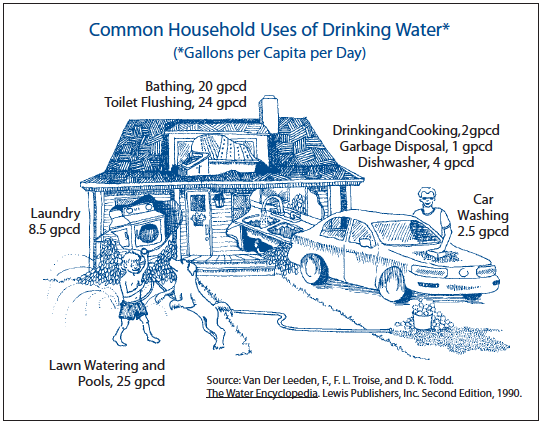
How to Conserve Water
How Can Businesses Conserve Water?
The industrial and commercial sectors can conserve water through recycling and waste reduction. Industry has implemented conservation measures to comply with state and federal water pollution controls. Evaluation of industrial plant data may show that a particular process or manufacturing step uses the most water or causes the greatest contamination. Such areas can be targeted for water conservation. Also, water that is contaminated by one process may be usable in other plant processes that do not require high-quality, clean water.
How Can I Conserve Water?
The national average cost of water is $2 per 1,000 gallons. The average American family spends about $474 each year on water and sewage fees. American households spend an additional $230 per year on water heating costs. By replacing appliances, such as the old dishwasher and other inefficient fixtures such as toilets and shower heads, homeowners can save a substantial amount each year in water, sewage, and energy costs.
There are many ways to save water in and around the home. Here are 5 that will yield the best results:
- Find and stop leaks.
- Replace old toilets with models that use 1.6 gallons or less per flush.
- Replace old clothes washers with EPA ENERGY STAR-certified models.
- Plant the right kind of garden that requires the least amount of water for the climate.
- Provide only the amount of water that plants need.
VERY IMPORTANT WATER FACTS YOU SHOULD KNOW.
WELL WATER (PRIVATE)
1/ Well water is essentially FREE following the installation of the well or purchase of a private residence with a well.
2/ Well water (ground water) is naturally treated below the surface, then passes through a filtration system, making it virtually free of bacteria, pathogens, and other harmful chemicals that lead to waterborne illnesses.
3/ Well water (ground water) is essentially an unlimited resource right below your feet that will basically NEVER run out.
TAP WATER (PUBLIC)
1/ We pay approximately $2.00 for every 1000 gallons of water from our community water supply. That’s 1/5 of $0.01 per gallon.
2/ Tap water is filtered 4 times, disinfected, and tested daily before it is pumped to your house.
3/ Tap water has strict health guidelines thanks to the Safe Water Drinking Act of 1974.
BOTTLED WATER (CORPORATE)
1/ On average, bottled water costs 1000 times more than tap and well water.
2/ Bottled water is most likely to be pumped and bottled straight from a surface water source (a lake or stream) without adequate filtering, disinfecting, or testing.
3/ Bottled water does not have any health guidelines established by the Safe Drinking Water Act of 1974, but follows FDA guidelines.
4/ It takes 17,000,000 barrels of oil to make the 30,000,000,000 plastic bottles the U.S. uses every year.
Me and my team at LAB Home Inspections hope you really enjoyed this article!
If you have specific questions about your home, or would like to schedule a home inspection, please contact Darren directly:
Darren Dawson, Certified Master Inspector (CMI)®
Myrtle Beach, SC
(352) 665- 9900

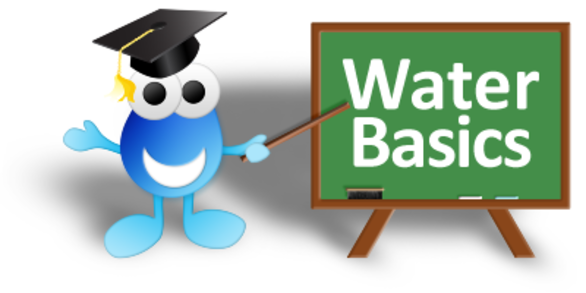

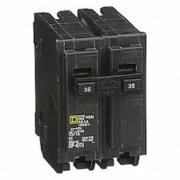

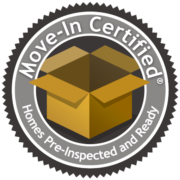
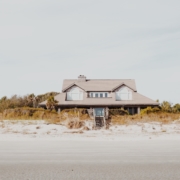
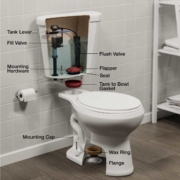
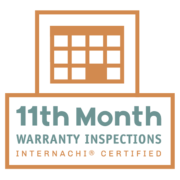
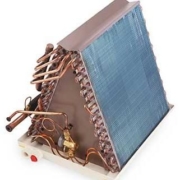


Leave a Reply
Want to join the discussion?Feel free to contribute!